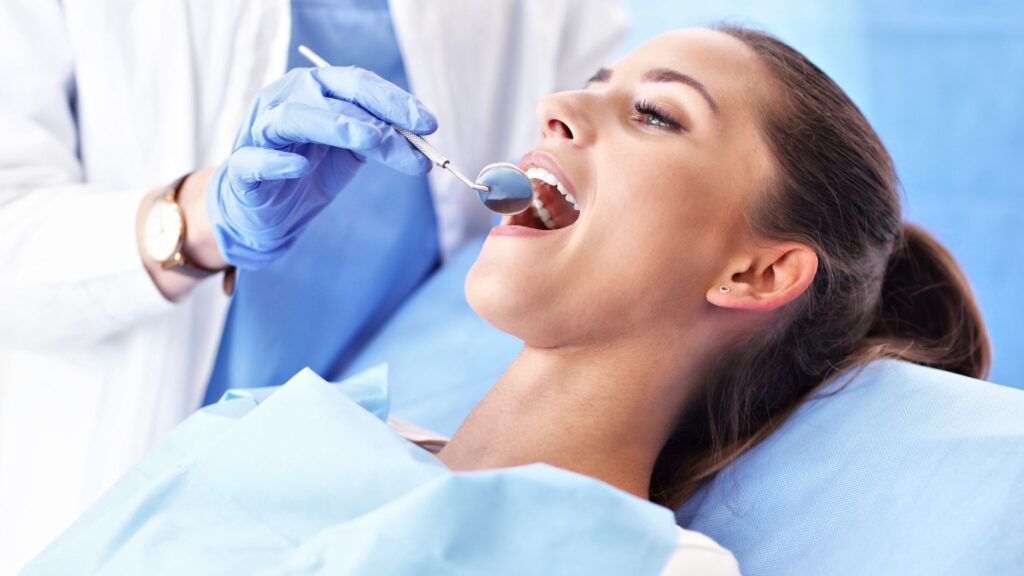The Different Types of Dental Implants

Reviving Smiles: Delving into the Different Types of Dental Implants in Aberdeen, NJ
When it comes to replacing missing teeth, dental implants have become a popular and effective solution. They offer a permanent, natural-looking option that restores both function and aesthetics. At Friendly Dental, the best dentist in Aberdeen, NJ, we understand the importance of choosing the right type of dental implant for your specific needs.
Endosteal Implants
Endosteal implants are the most common type of dental implant. They insert directly into the jawbone and act as replacement roots for missing teeth. This type of implant typically uses titanium, known for its strength and biocompatibility.
Procedure: The process involves two main steps. First, the dentist surgically places the implant into the jawbone. After several months of healing, during which the implant fuses with the bone (osseointegration), we place a crown on top to complete the restoration.
Advantages:
- High success rate due to the strong bond with the bone.
- Long-lasting and durable solution.
- Ideal for patients with sufficient jawbone density.
Considerations: Patients need to have a healthy jawbone for this type of implant. Those with significant bone loss might require a bone graft before the implant placement.
Subperiosteal Implants
Subperiosteal implants are an alternative for patients who do not have enough healthy jawbone for endosteal implants but want to avoid bone grafting. We place these implants under the gum but on or above the jawbone.
Procedure: The dentist places a metal frame under the gum tissue. As the gum heals, the frame becomes anchored to the jawbone. After healing, we attach posts to the frame and place artificial teeth on top.
Advantages:
- Suitable for patients with minimal jawbone density.
- Avoids the need for bone grafting procedures.
Considerations: Subperiosteal implants may not be as common today due to advancements in bone grafting techniques and the development of other implant types. They also require precise placement and careful planning.
Zygomatic Implants
Zygomatic implants serve patients with severe bone loss in the upper jaw. Unlike traditional implants, zygomatic implants anchor into the zygomatic bone (cheekbone) instead of the jawbone.
Procedure: This procedure is more complex and typically involves placing the implant into the zygomatic bone. You can often place a temporary prosthesis on the same day, with final restorations completed after a healing period.
Advantages:
- Provides a solution for patients with insufficient upper jawbone.
- Often completed in a single visit, this approach reduces the need for bone grafting.
Considerations: Zygomatic implants require specialized training and expertise. They may not be suitable for all patients and require a thorough evaluation.
All-on-4 Implants
The All-on-4 implant technique is a popular option for full arch replacement. It involves placing four implants in strategic locations in the jawbone to support a complete set of teeth.
Procedure: The dentist places four implants in the jaw, which act as a foundation for a full arch of teeth. This method often allows for immediate placement of a temporary set of teeth, with final prosthetics installed after healing.
Advantages:
- Provides a complete tooth replacement solution with fewer implants.
- Often avoids the need for bone grafting.
- Allows for immediate restoration in many cases.
Considerations: This technique requires precise placement and planning. It may not be suitable for patients with severe bone loss or certain medical conditions.
Mini Implants
Mini implants, smaller in diameter than traditional implants, fit situations where standard implants may not work.
Procedure: The procedure for mini implants is similar to that of regular implants but involves smaller, narrower implants. They often stabilize dentures or fit situations with limited space.
Advantages:
- Less invasive with a shorter recovery time.
- Ideal for patients with limited bone density or space.
Considerations: Mini implants usually offer less durability than traditional implants and are often used for less demanding applications.
Choosing the Right Implant
Selecting the right type of dental implant depends on several factors, including your overall oral health, jawbone density, and specific dental needs. At Friendly Dental, the best dentist in Aberdeen, NJ, will conduct a thorough examination and discuss all available options to determine the best treatment plan for you.
Contact Us
Dental implants provide a versatile and effective solution for replacing missing teeth. Understanding the different types of implants can help you make an informed decision about the best option for your situation. Whether you need endosteal, subperiosteal, zygomatic, All-on-4, or mini implants, our team at Friendly Dental is here to guide you through every step of the process. Contact us today to schedule a consultation and take the first step toward a healthier, more confident smile.









